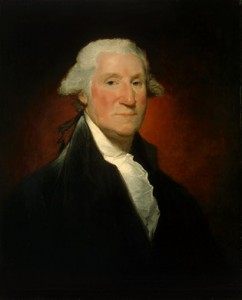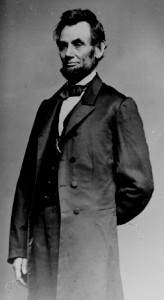Let me clarify something today. I can almost hear some readers of this blog thinking, “He criticizes the president and Congress so much that he can’t really have any respect for the government.”
The opposite is true.
I have the highest regard for the federal government. This comes from a reading of the Constitution, the debates over its ratification, and the character of many of those who helped bring it to pass. I believe the form of government set up by our Constitution is the best the world has seen, yet I also believe that it can work the way it’s supposed to work only if we maintain our Biblical principles, one of which is Christian character.
Congress, in theory, is a wonderful institution. Initially, it allowed direct representation for the people and direct representation for all state governments. This provided balance and set up a federal system. When we changed how senators were elected, state governments lost all representation. That was a blow to the federalism essential for the Congress to function the way it was intended.
Further, when individuals in Congress are allowed to set up their fiefdoms over which they rule imperiously, we have lost the character necessary for it to represent the people.
As for the presidency, the Constitution did not set up an all-powerful executive. It did give the president strong powers in certain areas, such as making him the commander in chief of the armed forces, but the president was not to be a monarch.
George Washington, I believe, had the proper attitude toward the office. He accepted it as a sacred trust, a responsibility thrust upon him by a people who had confidence in his leadership. Given a choice, he never would have taken the job; he would have preferred to stay at home and oversee his farms. Yet his country needed him to set the right precedents for the office.
What we need today are people who don’t need to be president to have fulfilled lives. Far too many of those who aspire to the office see it as the apex of their existence. Many have been running for it [in their minds, at least] since they were teenagers. How many do so because they have the same attitude Washington had? How many do so because they simply want the authority that the office bestows? The latter are not the ones I want to entrust with that authority.
I know not everyone will agree with me that Abraham Lincoln also possessed Washington’s outlook. Yes, he was a politician who wanted the job. However, a closer look at his motives reveals a strong desire to use that office for good constitutionally. He had dropped out of politics until Congress passed the Kansas-Nebraska Act in 1854. That act, which opened a new area to slavery, incited Lincoln to reenter the fray.
As president, he bore a heavy burden. Those with Southern sympathies believe he was a tyrant. I must respectfully disagree. Although under tremendous pressure to change the nature of the country forever, he did no such thing. He merely took his job as commander in chief seriously as he tried to bring rebellious states under control. In the process, slavery disappeared. I used to be one of those who disliked Lincoln. Further study changed my mind.
We have had presidents since Lincoln who did their best to keep the nation operating constitutionally. Chief among those were Grover Cleveland, Calvin Coolidge, and Ronald Reagan. Others had strong impulses for changing the government in a way that would destroy the original intent of the Founders: Woodrow Wilson, Franklin Roosevelt, Lyndon Johnson, Bill Clinton, and Barack Obama have been the most prominent.
Why do I critique the current Congress and President Trump so much? It’s because I have a deep respect for the original intent of this government. It’s because I have a heartfelt desire to see us maintain our Biblical principles and build upon them. Congress has become a place where men and women can simply stay in power for a lifetime. President Trump’s character has hurt the office he holds just as much as anything done by Bill Clinton and Barack Obama.
When one sees the foundations of a once-great nation crumbling, one has a responsibility to speak up. To do otherwise would be to share in the blame when it finally is destroyed.


